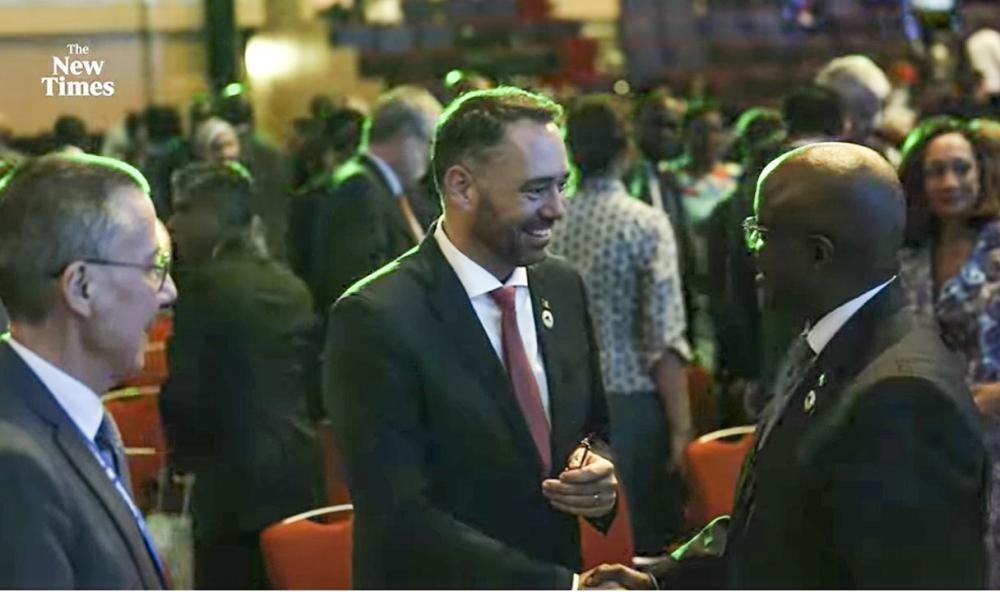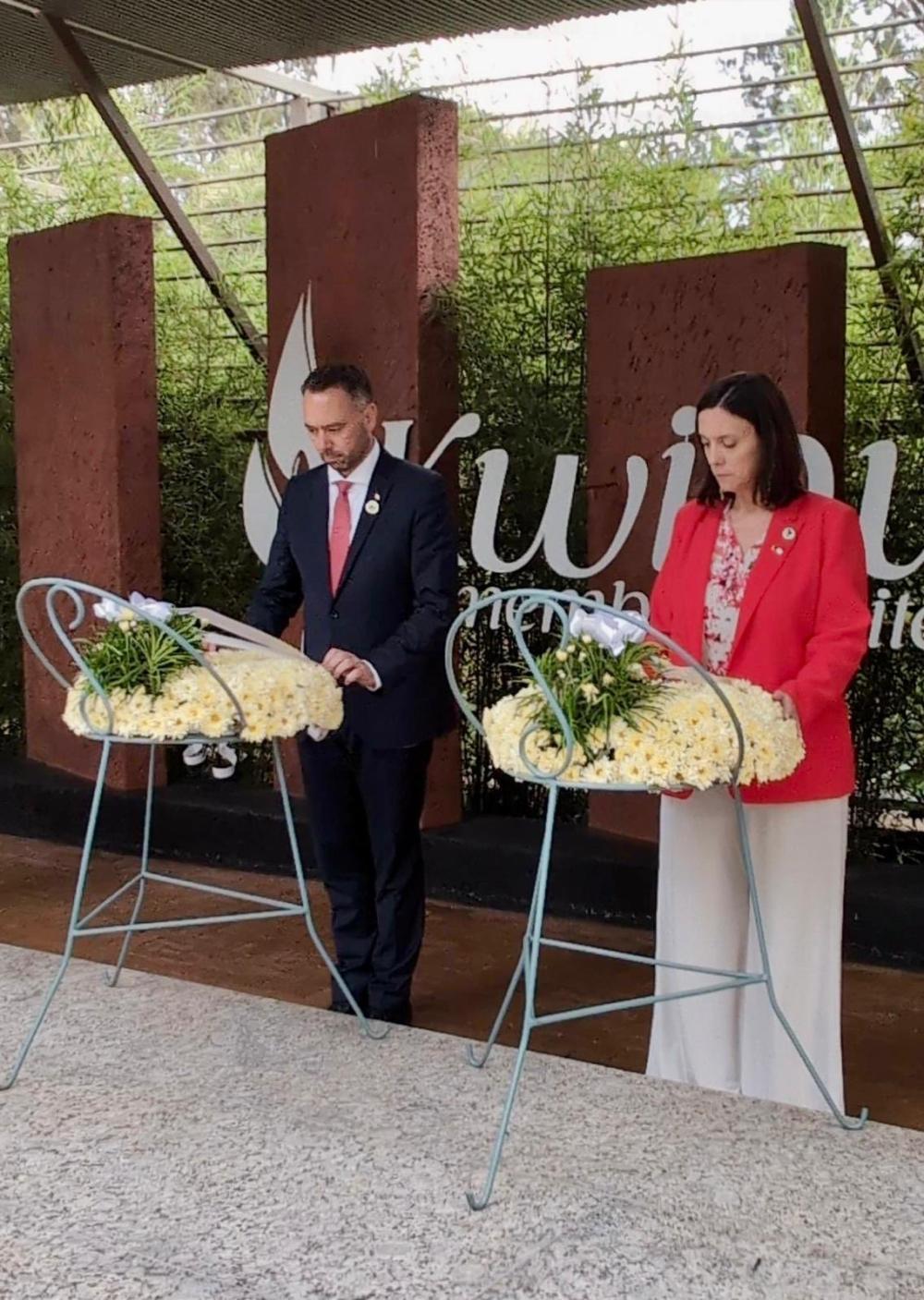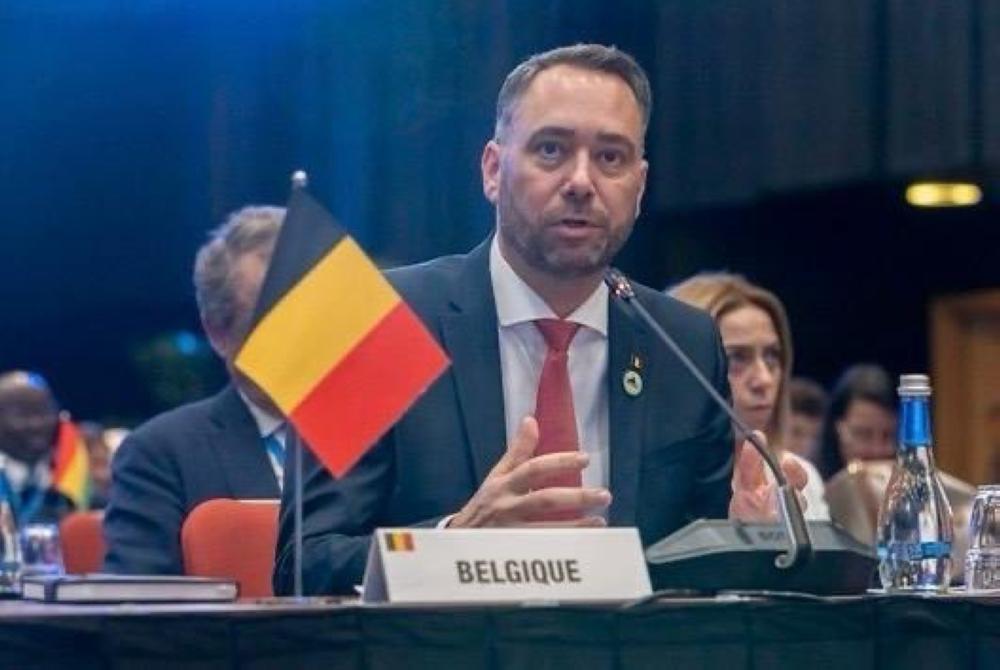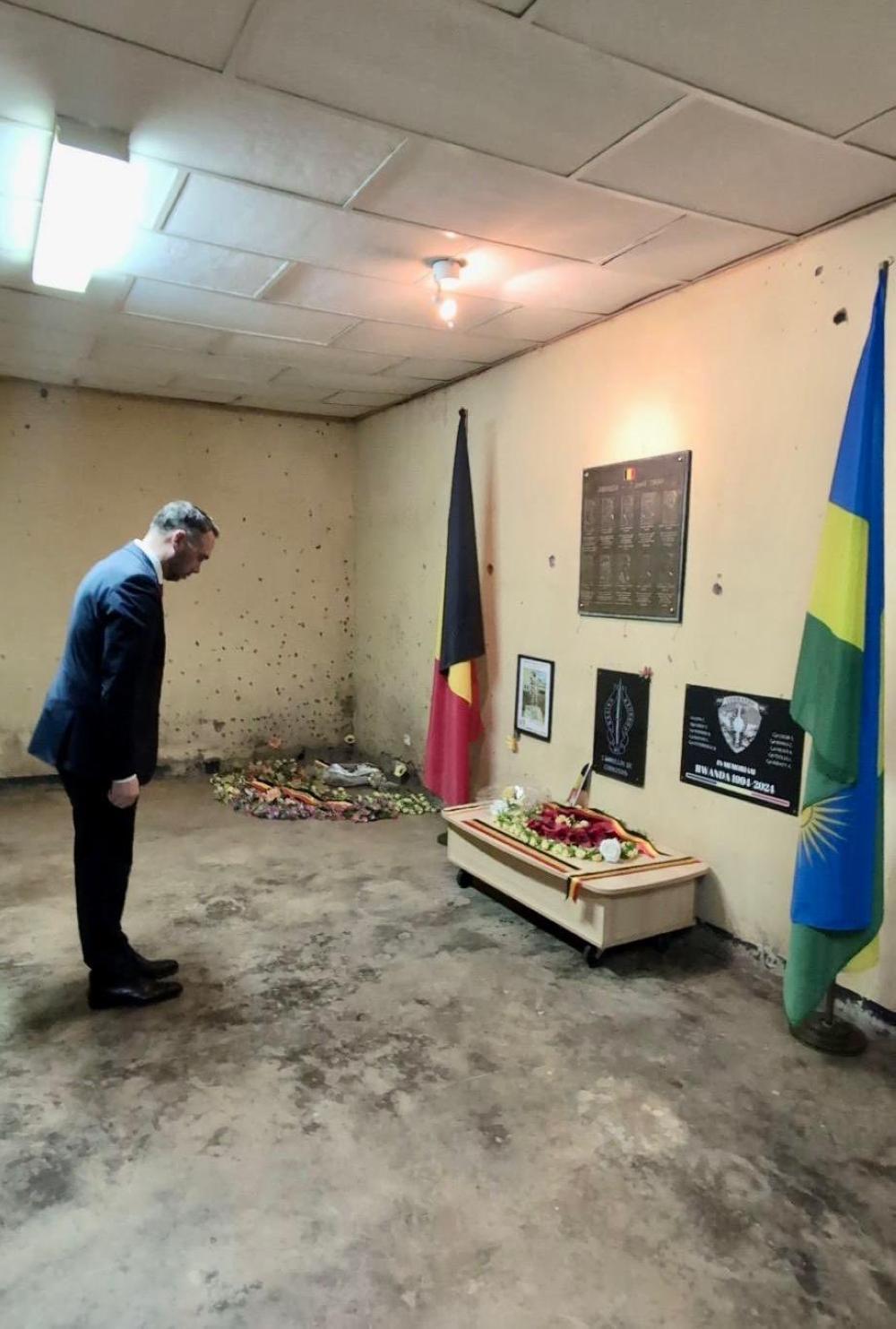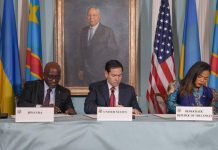Africa-Press – Rwanda. Top Rwandan and Belgian diplomats held bilateral talks on Wednesday, November 19, in the capital of Kigali, The New Times has learned.
It also emerged that this was the second time the two sides were directly engaging in behind-the-scenes discussions since Kigali severed ties with Belgium back in March over what it called the latter’s “pitiful attempts to sustain its neocolonial delusions”.
The first round of talks took place in Doha, Qatar in May, according to a highly placed source that spoke on condition of anonymity, citing the confidentiality of the engagements.
Amb. Olivier Nduhungirehe, the Minister of Foreign Affairs and International Cooperation, and the visiting Belgian Vice Prime Minister and Minister of Foreign Affairs Maxime Prévot led their respective delegations in the latest round of talks.
Prévot arrived in Kigali earlier this week leading a Belgian delegation to attend the 46th ministerial conference of the International Organisation of La Francophonie, a grouping largely composed of countries and territories with a notable affiliation to the French language and culture. The bloc is led by Rwanda’s former foreign minister Louise Mushikiwabo.
Nduhungirehe confirmed that he had met his Belgian counterpart this Wednesday but declined to be drawn into further details. “We indeed met yesterday, but I prefer not to make further comments,” he told The New Times late Thursday.
Belgian Vice Prime Minister and Minister of Foreign Affairs Maxime Prévot and his delegation on Wednesday visited Kigali Genocide Memorial.
While details of the discussions remain scanty, sources indicate that there were multipronged efforts for the two sides to iron out their differences, which came to a head in the wake of the conflict in DR Congo between a coalition of government forces that includes the genocidal FDLR militia linked to the 1994 Genocide against the Tutsi in Rwanda on the one hand, and the AFC/M23 rebel movement on the other.
Kigali accused the Belgian government of taking sides in the conflict and “continuing to systematically mobilise against Rwanda in different forums, using lies and manipulation to secure an unjustified hostile opinion of Rwanda, in an attempt to destabilise both Rwanda and the region”.
The Belgian Vice Prime Minister and Minister of Foreign Affairs Maxime Prévot and his delegation were in Rwanda to attend the 46th ministerial conference of the International Organisation of La Francophonie. Courtesy
Too close to Tshisekedi regime
Belgium, which inherited Rwanda as its colony following the ouster of German colonial regime after World War I in 1918, is widely seen as being too close to the government of President Félix Antoine Tshisekedi Tshilombo, accused of mobilising and financing self-exiled anti-Rwanda groups, including genocidal FDLR, with a view to overthrow the current Rwandan government.
As the war in neighbouring DR Congo spread which saw the rebels capture the strategic eastern cities of Goma and Bukavu earlier this year, Belgium led calls for sanctions against Rwanda over links to the rebellion, a charge Kigali has rejected.
During his visit in Rwanda, Minister Maxime Prévot also paid tribute to Belgian Peacekeepers who were killed in Rwanda in 1994. Courtesy
Brussels is also intrinsically connected to Rwanda’s tragic past having sown the seeds of division through entrenching ethnic politics as an instrument of divide-and-rule strategy.
“Beyond Belgium’s destructive historical role in fueling the ethnic extremism that resulted in entrenched discrimination and persecution, and ultimately the 1994 Genocide against the Tutsi, it has also allowed Belgian territory to be used by groups that propagate genocide denial and sustain genocidal ideology,” the Rwandan government said in a statement in March.
The warring parties in the DR Conflict have since agreed on a peace framework, a Doha-facilitated process, setting out the fundamental principles and commitments toward finding a peaceful resolution. However, both sides continue to trade accusations and counteraccusations of ceasefire violations.
Belgium is involved in training DR Congo’s elite forces, although there have been varying accounts on the extent of its involvement with the conflict.
Prévot’s message at Genocide memorial
Meanwhile, Prévot and his delegation on Wednesday visited Kigali Genocide Memorial, the final resting place of more than 250,000 victims. The Genocide claimed the lives of over one million people across the country.
At the memorial, the Belgian top diplomat paid tribute to the victims and saluted the people of Rwanda for their resilience and determination to “overcome this tragedy to build a present and a future based on reconciliation, dignity, and development.”
“On behalf of the government and the people of Belgium, I once again bow in memory of the victims of the Genocide against the Tutsis in 1994 in Rwanda,” he wrote, in French, in the memorial’s guest book. “The visit to this memorial is a chilling reminder of these events that deeply wounded our humanity.”
He added, “It is our collective responsibility to ensure that such atrocities never happen again, neither in this region nor anywhere else in the world. Belgium will pursue this commitment with determination.
“The fight against denial is part of this, as is the prosecution in Belgium of those responsible for these crimes, for whom no impunity is acceptable. I salute the resilience of the Rwandan people, who have overcome this tragedy to build a present and a future based on reconciliation, dignity, and development.”
For More News And Analysis About Rwanda Follow Africa-Press

